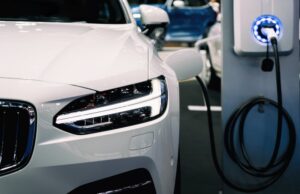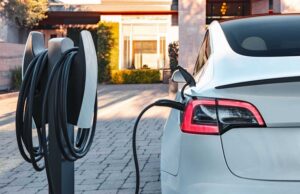As with regular, non-electric vehicles, an electric vehicle must be maintained in order to sustain its performance over time. Electric vehicle maintenance
Ultimately, electric vehicles usually carry a higher price tag in more regards than one. First and foremost, the purchase price is oftentimes higher, especially with brand new models. Second, the vehicle must be insured. While you can compare auto insurance providers online, they generally run a bit higher than insuring a non-electric vehicle. Lastly, there is the cost to actually charge the vehicle. Installing a fast-charge station at your home can carry a hefty price tag.
These overall higher costs are the primary reason to properly maintain an electric vehicle. .
In general, electric vehicles are very easy to maintain because they require few changes of parts. The electric motor is made up of very few moving parts (less than 10 compared to a few thousand for conventional vehicles), and their technology, which has been widely proven in the industrial and railway fields, makes it possible to travel up to 1 million kilometers for cars. The maintenance costs announced for an electric car are 30 to 40% lower than conventional vehicles.
Common elements with conventional internal combustion vehicles
Most of the mechanical and aesthetic elements of electric cars remain identical to those of thermal vehicles. So you can find the following wearing parts:
Shock absorbers: electric vehicles have shock absorbers identical to those of thermal vehicles, and must be maintained in the same way. They may be stressed differently depending on the position of the engine and the batteries on the chassis;
Transmission: an electric vehicle has a simpler transmission system: the gearbox is limited to a single reducer. However, it also requires maintenance of the oil that will be there. Provide regular maintenance between 60 and 100,000 kilometers;
Tires: the tires of an electric vehicle will also experience wear in contact with the road, certainly less than those of a conventional vehicle. The lifespan will depend in particular on the mode of driving;
Brakes: the braking system of electric vehicles is different from conventional thermal vehicles. Indeed, the electric car’s power system recovers a good part of the kinetic energy during electric braking, and the mechanical brakes are less stressed. The life of your pads and drums will therefore be extended;
The other mechanical and electronic elements: the steering, the suspension, the filtering system and the air conditioning will be identical and maintained in a similar manner.
Maintenance of an electric vehicle
The electric vehicle must be maintained on a regular basis and quite similar to the thermal vehicle, apart from:
The electric motor
The electric motor used on vehicles is generally direct current. The new generations of electric cars are equipped with brushless (or “ brushless ”) motors: these DC motors allow them to be used without maintenance over long periods of time. Their lifespan is estimated at several million kilometres. The criterion of engine quality will therefore be preferred when purchasing.
The batteries
The rechargeable electric batteries of cars mainly use lithium-ion technology which allows them to have a long range. Several research projects are underway to increase autonomy and their lifespan.
Indeed, the battery, a key part of the electric vehicle, can prove to be a weak point for maintenance. These sophisticated batteries are managed by the on-board electronics so as not to damage them. This is why it does not require daily maintenance.
However, the lifespan of batteries is not infinite: it can withstand a defined number of charge and discharge cycles before losing, not all of its capacity, but a significant part of it. You will therefore have to change the batteries in your vehicle at the end of the optimum capacity period, depending on the quality of manufacture and your use. This duration is variable and generally ranges from seven to ten years.
The advantages of the electric vehicle for reduced maintenance
The end of the oil change: a thermal vehicle must be regularly drained of its engine oil in order to ensure correct lubrication and cooling of its engine block. With the electric vehicle, the oil change becomes anecdotal since an electric motor does not require lubrication.
A simpler traction chain: no longer having a gearbox or clutch, the associated mechanical technical constraints disappear: less wear, less breakage.
Less stressed brake pads thanks to the braking energy recovery system.
The first feedback
Regular users of electric vehicles report very good results in terms of car maintenance overall. It is estimated that the savings in maintenance compared to a thermal vehicle of the same category, for the same mileage, are approximately 25 to 30% cheaper. The industrialization of series and the generalization of their use will show us the balance found by manufacturers for maintenance.
Different maintenance methods
The maintenance of an electric vehicle is significantly different in the method and the safety instructions to be followed, since it is now a question of working under voltage, linked to high voltages and electrical intensities. The professionalization of maintenance is therefore necessary, but basic maintenance remains largely feasible at the level of individuals.
Proof of this is that French and international standardization ( AFNOR and ISO ) is being prepared for live working during the maintenance of electric vehicles.
The electric car will therefore revolutionize car maintenance and upkeep methods, which is very likely to affect small and large mechanics. Investments in equipment, staff training, and special attention will be required to allow the maintenance of private and professional vehicles.
The maintenance cost of an electric car is therefore not zero, but extremely reduced, and you can now embark on the purchase of an electric vehicle with confidence knowing the maintenance associated with its use.



